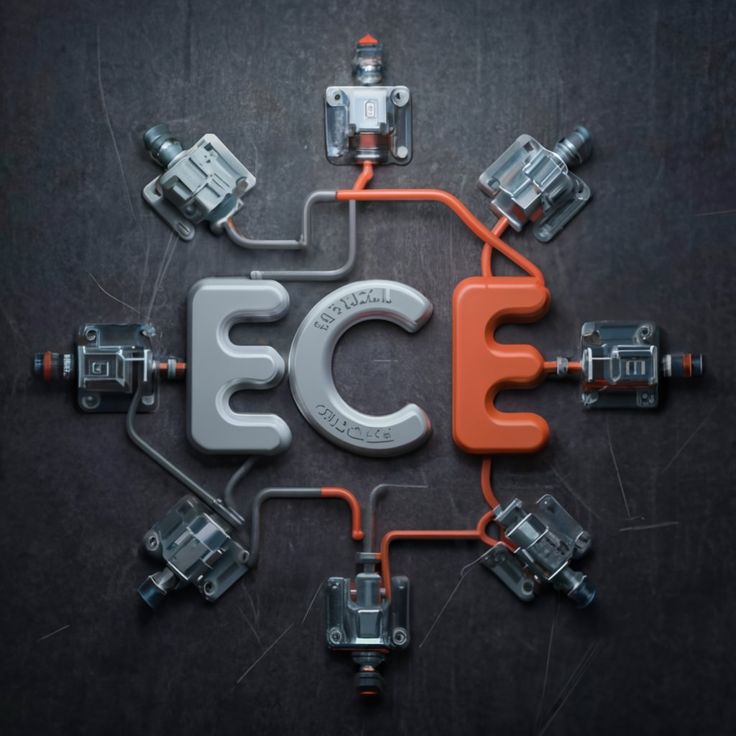 SITASRM ENGINEERING & RESEARCH INSTITUTE
SITASRM ENGINEERING & RESEARCH INSTITUTE
 SITASRM ENGINEERING
SITASRM ENGINEERING & RESEARCH INSTITUTE

SITASRM ENGINEERING & RESEARCH INSTITUTE
Menu
Top 10 Career Opportunities After Electronics and Computer Engineering

"The future belongs to those who design it — and in a world driven by innovation, electronics and communication engineers are the architects."
Did you know that electronics and communication engineering is one of the most versatile branches of engineering today? From designing advanced communication systems to building intelligent electronics that power satellites, smartphones, and autonomous vehicles — this field plays a pivotal role in shaping our tech-driven world.
As industries evolve, so do the career opportunities after electronics and communication engineering. Whether you're passionate about signal processing, embedded systems, VLSI, or AI, this stream opens doors to multiple high-growth sectors. But which paths are the most promising? Let’s explore!
1. Embedded Systems Engineer
If you're fascinated by how tiny chips control big machines, this career is for you. Embedded systems engineers work at the intersection of hardware and software, developing real-time computing systems for devices like smart TVs, medical equipment, or automotive control units.
Skills required: C/C++ programming, microcontroller programming, real-time operating systems (RTOS).
Industries: Automotive, healthcare tech, consumer electronics.
2. Software Developer (With a Hardware Edge)
Thanks to your hardware background, you bring unique insights to software development. Companies love ECE grads for software roles involving device drivers, firmware, and IoT platforms.
Skills required: Java, Python, C++, and familiarity with software development life cycles.
Bonus: Knowledge of electronics gives you an edge in systems programming and robotics.
3. IoT (Internet of Things) Solutions Architect
Electronics and communication engineering is the backbone of IoT — connecting physical devices to the digital world. As an IoT architect, you'll design smart solutions across industries: agriculture, homes, cities, and more.
Skills required: Networking, cloud computing, sensors, data analytics, and embedded programming.
Fun fact: Businesswire has mentioned that the global IoT market is projected to surpass $1.5 trillion by 2027. (ref)
4. VLSI Design Engineer
If chip design and digital logic excite you, VLSI (Very Large-Scale Integration) could be your calling. VLSI engineers design the integrated circuits used in smartphones, CPUs, and memory devices.
Skills required: Digital electronics, HDL (VHDL/Verilog), ASIC/FPGA design, and EDA tools.
Job Locations: India’s top semiconductor hubs include Bangalore, Hyderabad, and Noida.
5. Data Scientist or Machine Learning Engineer
Surprised? Don’t be. With strong mathematical foundations and coding proficiency, ECE graduates can seamlessly transition into the world of AI and data science. Many companies value engineers with signal processing and algorithmic skills.
Skills required: Python, R, TensorFlow, MATLAB, statistics, and machine learning algorithms.
Industries: Fintech, health-tech, e-commerce, logistics, and more.
6. Robotics Engineer
Robotics merges electronics, communication, and programming — a natural fit for ECE grads. From autonomous drones to robotic arms in factories, robotics engineers design smart machines that solve real-world problems.
Skills required: Control systems, embedded systems, mechatronics, and AI integration.
Real-world impact: Robots are transforming industries like manufacturing, defense, and healthcare.
7. Cybersecurity Analyst
With every new connected device, cybersecurity becomes even more critical. That's why this domain needs engineers who understand both hardware and networks.
Skills required: Network security, ethical hacking, cryptography, risk analysis, and firewall management.
Why ECE grads excel here: Their system-level understanding helps mitigate threats at both software and hardware levels.
8. Control Systems Engineer
Control systems are essential in industries like aerospace, robotics, and smart manufacturing. These engineers design automated systems to manage variables like speed, pressure, and temperature.
Skills required: Signal processing, MATLAB/Simulink, control theory, PLCs (Programmable Logic Controllers).
Applications: Aircraft autopilot systems, smart grids, and process automation.
9. Electronics Design Engineer
Do you enjoy working with circuits, PCBs, and prototypes? Then electronics design engineering may be your ideal path. These engineers build and test electronic components used across industries.
Skills required: PCB design, simulation software (e.g., SPICE), soldering, hardware debugging.
Industries: Aerospace, consumer electronics, medical tech, and defense systems.
10. Higher Education and Research
Not all roads lead straight to the corporate world. Many electronics and communication engineering graduates pursue postgraduate studies (M.Tech/MS/PhD) in domains like wireless communication, signal processing, or nanotechnology.
Benefits: Opens doors to cutting-edge research, teaching careers, and global academic opportunities.
Why This Field Offers Limitless Potential
Here’s what makes electronics and communication engineering an exciting and future-proof discipline:
-
Multidisciplinary training: You master both electronics and communication systems.
-
Global relevance: ECE grads are in demand across continents and industries.
-
Career flexibility: Whether you're into hardware, software, or networks — there's a place for you.
-
Ever-evolving tech: From 5G to satellite communication, ECE touches all emerging tech sectors.
Your degree doesn't lock you into one path — it gives you the power to pivot and adapt as new technologies emerge.
Conclusion: Your Future Starts Now
Choosing a career after completing an electronics and communication engineering course is not just about landing a job — it’s about building solutions for tomorrow. Whether you're driven by innovation, intelligence, or impact, this field empowers you to lead technological change.
At the heart of this transformation lies quality education. The ECE program at SERI is designed to provide students with a strong academic foundation, practical skills, and exposure to real-world challenges; ensuring you're ready to shape the future, not just witness it.















































